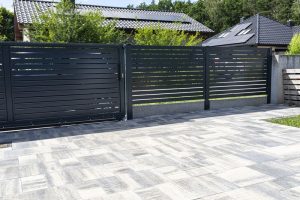In a world where sustainability has become more than just a buzzword, making eco-friendly choices for outdoor projects can go a long way. These choices benefit the environment and improve the quality and durability of your outdoor spaces. Whether revamping your backyard, building a new deck, or planning a garden, selecting the right materials is crucial. Let’s explore some sustainable materials you can consider for your next outdoor project.
Choosing the Right Wood
Wood is a classic choice for outdoor projects, but not all wood is equal. When selecting wood, go for varieties that are sustainably harvested. This helps maintain forest ecosystems while ensuring the wood is of high quality. Look for certifications that guarantee sustainable practices. Different types of wood can serve different functions, from supporting structures to aesthetic features. However, remember that untreated wood might only stand well against the elements with proper care and wood staining Fort Worth should be considered for added durability and visual appeal.
Recycled Plastic Lumber
Recycled plastic lumber is a fantastic alternative to traditional wood. Made from recycled materials, it is highly durable and requires little maintenance. Perfectly suitable for various outdoor applications such as decking or fencing, recycled plastic lumber is resistant to moisture, deterring mold and mildew. This long-lasting material also resists splintering, making it safer for families with small children. Additionally, its environmental impact is minimized due to its recycled content.
Benefits of Recycled Plastic Lumber
-
Eco-friendly and sustainable
-
Long-lasting and durable
-
Resistant to moisture and pests
-
Minimal maintenance required
Bamboo for a Green Touch
Bamboo is another remarkable material for outdoor projects. This fast-growing plant is a sustainable, renewable resource with strength and flexibility. With its natural resistance to pests and rotting, bamboo is excellent for fences, garden beds, and even furniture. Bamboo can give your outdoor space an exotic appeal while being environmentally friendly. If you are considering a unique yet sustainable option, bamboo might be the perfect material.
Concrete with Recycled Content
Concerning building materials, concrete often gets a bad environmental rap. However, using concrete that includes recycled content can significantly reduce its environmental impact. Look for “green concrete” options that use recycled aggregate materials, reducing the need for virgin resources. This makes your project more sustainable and adds robust durability and longevity. If you’re considering a new patio or pathway, consider materials from companies offering patio installation services in Aledo that focus on sustainability.
Earth-Friendly Paints and Finishes
Completing your outdoor project with environmentally friendly paints and finishes is a step toward a fully sustainable space. Opt for non-toxic, low-VOC paints and finishes to limit the harmful chemicals released into your surroundings. These paints come in a wide array of colors and finishes that can enhance the aesthetic appeal of your outdoor project without compromising air quality or personal health.
Advantages of Eco-Friendly Paints
-
Non-toxic and safe for the environment
-
Low in volatile organic compounds (VOCs)
-
Available in numerous colors and finishes
-
Improves air quality
Sustainable Stone Options
Stone is a robust material for outdoor projects, and by choosing sustainably sourced stone, you can lessen its environmental footprint. Reclaimed stone is an excellent option, as it repurposes materials that might otherwise end up in landfills. Whether you’re interested in stone for a walkway, patio, or feature wall, using reclaimed or sustainably sourced stone ensures no new quarrying impact while enjoying its timeless aesthetic and durability.
Prioritize Permeable Paving
Permeable paving materials, including porous concrete and pavers made from recycled content, allow rainwater to pass through into the ground. This reduces surface runoff, mitigating erosion and water pollution. Including permeable paving in your projects can help sustain the local water table. It’s beneficial for both driveways and garden paths. Indeed, it beautifully marries functionality with sustainability.
Naturally Sourced Insulation
If your outdoor project includes insulation, opt for products made from natural materials such as sheep wool or recycled denim. These options not only provide excellent insulating properties but also have a much lower environmental impact than traditional fiberglass insulation. They can also regulate temperature and increase soundproofing, a perfect combination for outdoor constructions like garden offices or studios.
Green Roofs for Added Harmony
Green roofs are not just a catchy trend; they’re an eco-friendly choice with numerous benefits. Using living plants as roof coverings improves the thermal performance of the building, reduces rainwater runoff, and creates a habitat for wildlife. It’s a substantial step towards sustainability, especially when planning to build a garden shed or a small outdoor building. Green roofs can transform both urban and rural spaces into thriving ecosystems.
Let’s Talk Cost and Sustainability
One consideration that often pops up when discussing sustainable materials is cost. Sustainable options are more expensive upfront. However, they should be viewed as an investment. Not only do they reduce your environmental impact, but they also tend to last longer, reducing the need for frequent replacements.
For example, while recycled plastic lumber may cost more than traditional wood, its longevity and minimal upkeep can save you money in the long term. To explore sustainable options, consider contacting reliable vendors; just click here for more details.
Making Your Sustainable Choice
Whether building a simple garden fence or embarking on a larger-scale outdoor project, making informed, sustainable choices can significantly lower your environmental impact. By considering renewable, recycled, or recyclable materials, you’re contributing to a healthier planet. Furthermore, employing sustainable practices doesn’t mean compromising on aesthetics or function; it often enhances them. Opt for eco-friendly materials that meet your design taste while remaining environmentally conscious.
Final Thoughts
Investing in sustainable materials for your outdoor projects isn’t just about being eco-friendly; it’s about ensuring the longevity and beauty of your creations. It’s about being part of a global movement toward more sustainable living, reducing our ecological footprint one project at a time. Embrace the shift to sustainable materials, and you may find that your outdoor spaces become not just functional and beautiful but also a true testament to mindful and responsible living.




